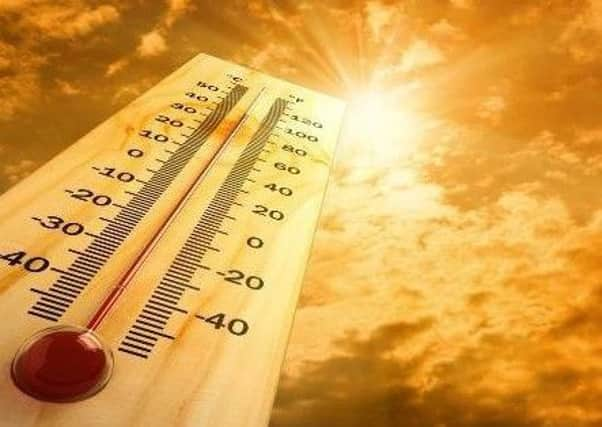Extreme weather is taking its toll on farms


The recent prolonged spell of scorching temperatures and drought has caused all sorts of issues for the industry, as farmers have seen their crops wilt, their fields parched and livestock struggle.
And this difficult summer period has come hot on the heels of a gruelling winter, which was bitterly-cold and wet, hitting the March lambing season hard with significant losses.
Advertisement
Hide AdAdvertisement
Hide AdOne Northumberland farmer has said that the crippling conditions are putting financial and mental pressure on agricultural workers, while another has said it has led to reduced income and larger costs.
Yesterday, an agricultural drought summit was held, as part of the NFU’s attempts to address the impact of the dry, hot weather on farms across the country. Environment Secretary, Michael Gove, promised support for farmers.
Against this backdrop, local farmers have encouraged people to support them by buying local produce and backing British agriculture.
Several farmers have spoken about the challenges.
Mark Mather, who farms at Haugh Head Farm, Wooler, said: “It’s been a very hard year – one of the worst. The snow then cold spring caused lamb losses and with no heat to grow grass, livestock suffered.
Advertisement
Hide AdAdvertisement
Hide Ad“Once the heat came, it was joined by wind that dried out the valley. Silage and hay crops were poor as stock was taken off late and then didn’t grow because it was too dry. After the snow, not much was left in reserves and a lot of farms are heading into the winter short of fodder.
“Grain prices are good, but a huge problem is the lack of straw available, which is driving prices high.”
Meanwhile, James Shell, of Brandon Farm, Powburn, said: “The hot spell has proved very difficult. The lack of grass is a big problem and buying in forage, which we don’t normally need to do, is expensive and difficult to get.
“The impact on the sales of cattle has been quite significant and are less than last year. There is a lack of demand for them because nobody has got any grass to feed them.
Advertisement
Hide AdAdvertisement
Hide Ad“The recent rain we had has been very welcome, but it hasn’t been enough to put this right. A lot more rain is needed in the next few weeks to try to alleviate the problem.”
Reflecting on the year so far, he said: “The spring was one of the worst I can remember. The weather was atrocious for lambing and the losses were greater than normal.
“It was a late spring and we were on the back foot from the start and this was followed by the drought – it has been a double whammy.
“Farmers are resilient, but there is no doubt that it is causing mental and financial pressure for farmers at the moment. I just hope we don’t get two years in a row like this. One year, you can stand up to it, but a second year would be very tough.”
Advertisement
Hide AdAdvertisement
Hide AdAnother farmer, who works in the Ingram Valley but didn’t want to be named, said: “After the hard winter we have gone straight into heatwave which really hampered spring growth, meaning less silage hay for winter and reduced grass for stock to graze.
“This means you have to either buy in expensive forage or sell stock off – which in itself will be a depressed market as nobody really has much forage for winter, meaning lower prices.
“Crops, especially spring crops, haven’t had the moisture, meaning largely reduced yields. The short length of straw will lead to a straw shortage which will affect producers who have to house stock and compete with power stations and biomass for what is available.
“It results in reduced income and larger costs. Luckily it’s a rare occurrence.”
Advertisement
Hide AdAdvertisement
Hide AdVincent Milburn, who farms near Rothbury, said livestock has had to be brought off the hills because there is nothing for them to eat and instead be fed concentrate – which is costly.
He added that this year’s period of drought is the worst since 1976.